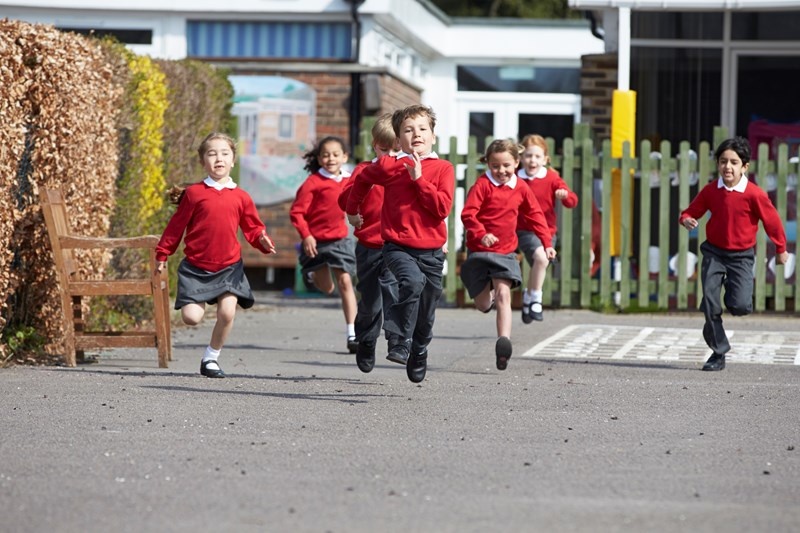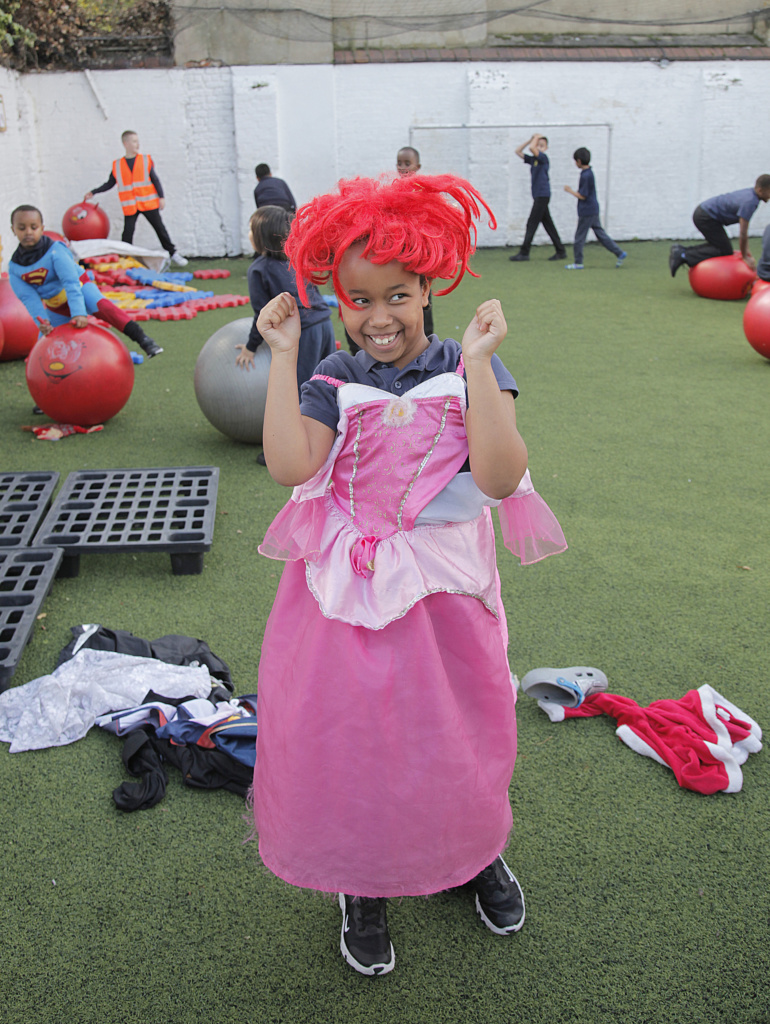
As a headteacher for over 18 years, I am more than familiar with the challenges of lunchtime. For many schools, the lunch break brings with it some behaviour issues, complaints from pupils along the lines of, ‘He said…She said…’ and lots of lining up—lining up to leave the classroom, lining up to go into the dining hall, lining up to leave the dining hall and lining up to go back into the classroom. To manage this—and in response to the fact that Ofsted often focuses on lunchtime behaviour—some schools have started to cut the lunch break, shaving off 15 minutes or so in the hope of addressing some of these issues. At St Peter’s, however, we have found a better solution.
Playtimes of lunchtimes past
I have been the headteacher at St Peter’s Catholic Primary School in the City of Gloucester for 10 years now. Until recently, our lunchtimes were very structured and organised. The focus was on making sure children got their lunch, had some playtime and then got back to class, not on maximising the opportunity to play during the lunch hour.
Our midday supervisors (as they were called back then) were each linked to one class. That class had an allocated area of the playground in which to play, an allocated time to eat in the dining hall and a timetabled spot to use the multi-use games area. Much of our outdoor space (such as the school field) was out of bounds in order to keep it and the children clean and tidy. Supervisors took their class into the dining hall at an allocated time and then they would wait for everyone to finish before taking them back outside where they would then line up to go back to class when lunchtime was over.
The structure was very confining—the whole hour was carefully organised with the primary aim being to limit disruption. Lunchtime supervisors spent most of their time managing the children.

A chance meeting that would change our lunchtimes forever...
All of this changed when I met the Director of Outdoor Play and Learning (OPAL), Michael Follett, at an Achieving Resilience Through Play and Drama (ARTPAD) event in July 2017. There’s a lot of evidence that shows how play contributes to children’s physical and emotional health, wellbeing, approach to learning and enjoyment of school, and I asked myself, ‘are we giving the children a good enough experience?’ St Peter’s was about to launch a three-year plan to support pupils’ mental health and wellbeing, so an outdoor play programme felt like a natural fit—the OPAL Primary Programme is a mentor-supported school improvement programme to help schools improve the quality of their play opportunities. I enrolled the school shortly afterwards and we started in October 2017.
Our journey has been transformational in the most positive sense, but embedding a whole new approach to lunchtimes was inevitably challenging. There was a lot of work to do, which took a real commitment from staff. During the programme, OPAL worked with us over an 18-month period to support an entire cultural and practical transformation of the way that play was thought about, planned for, resourced and staffed. We had to restructure the lunchtime team and revise their job descriptions. It was tough, but you get out of it what you put in. And we wanted the programme to be truly embedded in our school.